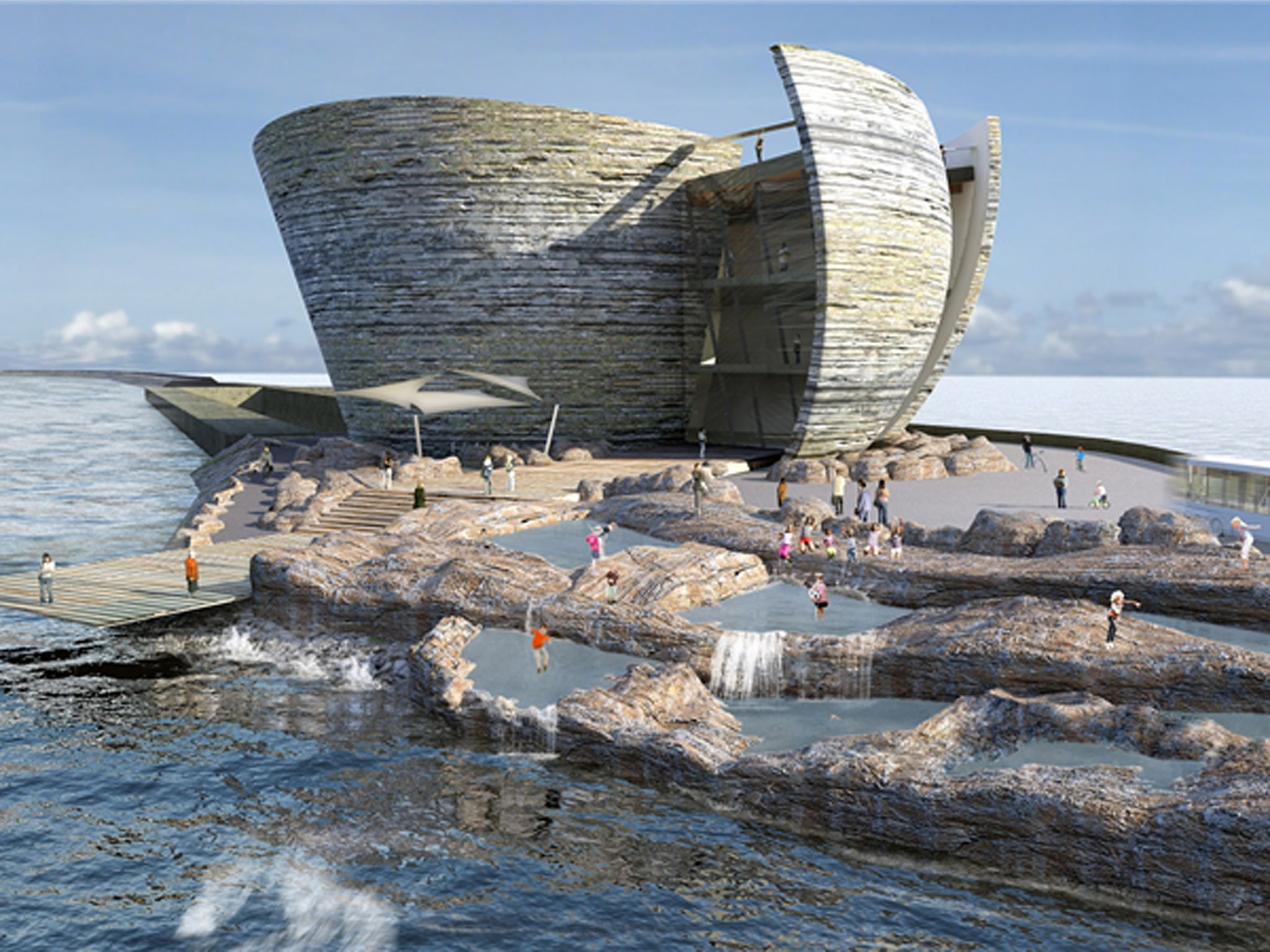UK unveils huge lagoon power plants stretching miles into the sea
Project will see company harnass power from six lagoons, most of which are in Wales

A company has unveiled plans for huge lagoon power plants, stretching miles into the sea, to harness tidal energy and turn it into electricity.
The giant power plants — four of which will be in Wales, with others in Somerset and Cumbria – will use generate power by capturing tides behind huge sea walls, using the water’s weight to push turbines round and generate electricity.
One of the projects, a £1 billion building in Swansea, is already in the planning system. The company behind the plant, Tidal Lagoon Power, hopes that it will be able to build all six and generate 8% of the UK’s electricity.
The sites will require new walls stretching miles into the sea. At the Swansea project, it will reach five miles across and push two miles into the sea.
Lagoon power works by using a system similar to a lock to get different water levels either side of the huge wall. The doors are closed to allow water to come into the lagoon as the tide rises, and then when it goes out again the doors are opened and the water pushes past turbines and generates electricity.
Lagoon power is more predictable than solar or wind energy, since it doesn’t depend in the same way on the weather.
There are worries that the giant wall could disrupt fishing and other activities, but the planners hope that they would be integrated into the environment and could become a reef.
The cost of the huge engineering projects, which could need investment of £30 billion, would be met by taxpayers under a government scheme intended to encourage the generation of power in Britain. The company will then have to negotiate with the government about how much would be paid for the power it generated.
Subscribe to Independent Premium to bookmark this article
Want to bookmark your favourite articles and stories to read or reference later? Start your Independent Premium subscription today.

Join our commenting forum
Join thought-provoking conversations, follow other Independent readers and see their replies